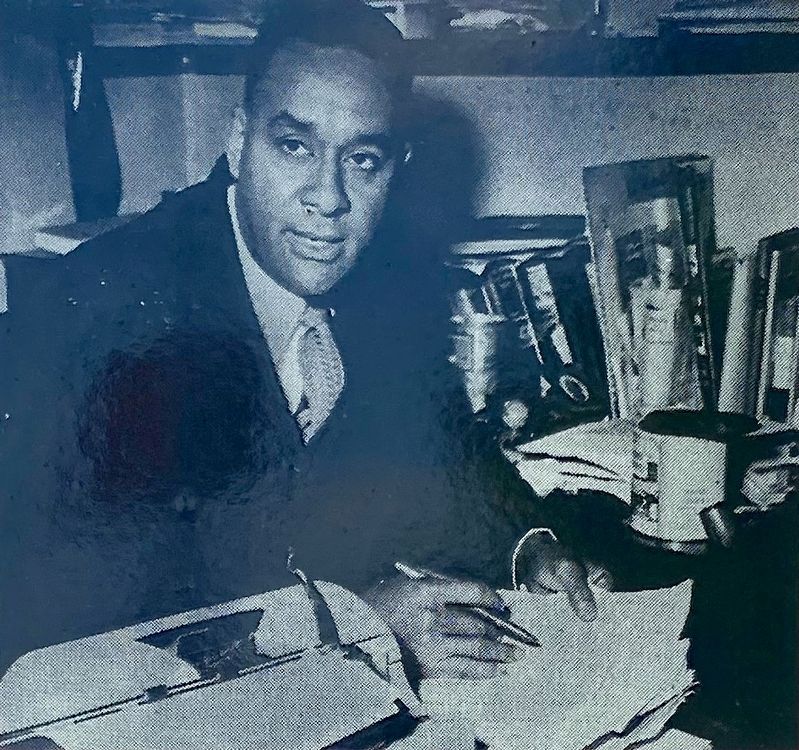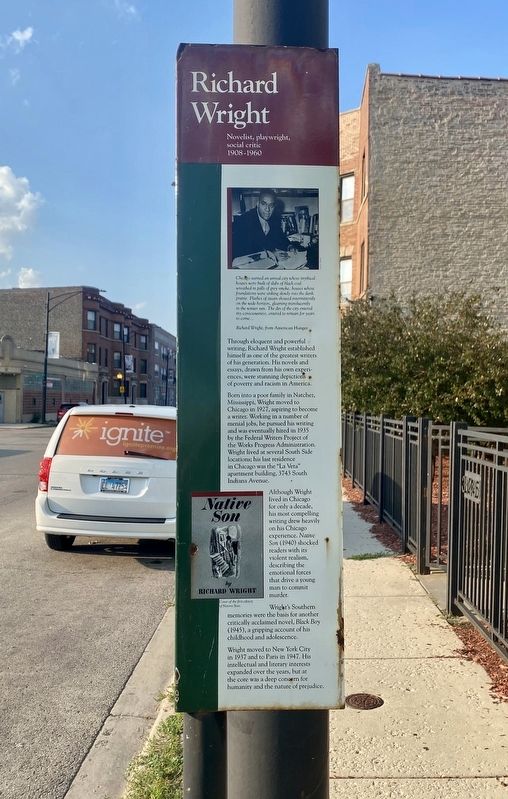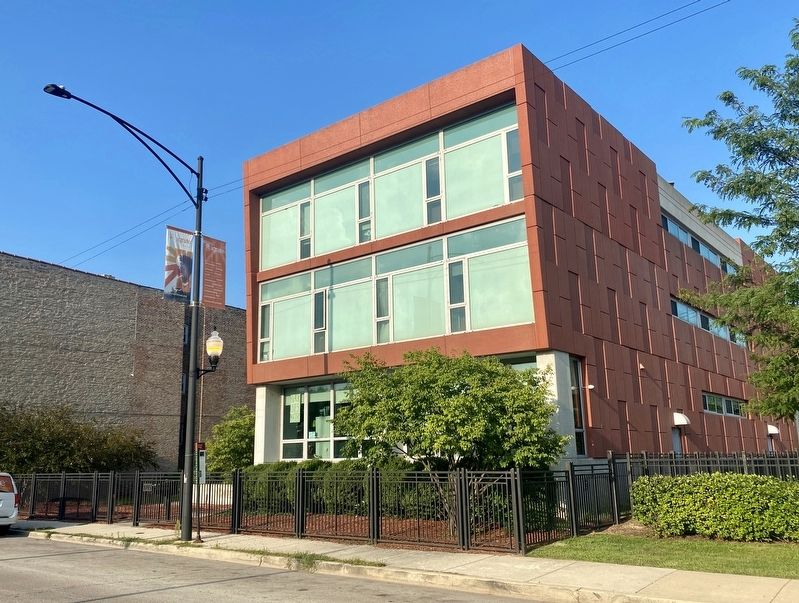Douglas (Bronzeville) in Chicago in Cook County, Illinois — The American Midwest (Great Lakes)
Richard Wright
Chicago Tribute
Novelist, playwright, social critic
1908-1960
Born into a poor family in Natchez, Mississippi, Wright moved to Chicago in 1927, aspiring to become a writer. Working in a number of menial jobs, he pursued his writing and was eventually hired in 1935 by the Federal Writers Project of the Works Progress Administration. Wright lived at several South Side locations; his last residence in Chicago was the "La Veta" apartment building, 3743 South Indiana Avenue.
Although Wright lived in Chicago for only a decade, his most compelling writing drew heavily on his Chicago experience. Native Son (1940) shocked readers with its violent realism, describing the emotional forces that drive a young man to commit murder.
Wright's Southern memories were the basis for another critically acclaimed novel, Black Boy (1945), a gripping account of his childhood and adolescence.
Wright moved to New York City in 1937 and to Paris in 1947, His intellectual and literary interests expanded over the years, but at the core was a deep concern for humanity and the nature of prejudice.
Erected by Chicago Tribune, Chicago Department of Cultural Affairs.
Topics and series. This historical marker is listed in these topic lists: African Americans • Arts, Letters, Music. In addition, it is included in the Chicago Tribute series list. A significant historical date for this entry is September 4, 1908.
Location. 41° 49.57′ N, 87° 37.293′ W. Marker is in Chicago, Illinois, in Cook County. It is in Douglas (Bronzeville). Marker is on South Indiana Avenue south of East 37th Street, on the right when traveling north. Touch for map. Marker is at or near this postal address: 3743 South Indiana Avenue, Chicago IL 60653, United States of America. Touch for directions.
Other nearby markers. At least 8 other markers are within walking distance of this marker. The Ida B. Wells Homes (approx. ¼ mile away); Ida B. Wells-Barnett (approx. ¼ mile away); Chicago Bee Building (approx. ¼ mile away); Overton Hygienic Building (approx. 0.3 miles away); Sunset Cafe (approx. 0.4 miles away); Chicago Defender Building (approx. 0.4 miles away); Victory, World War I Black Soldiers’ Memorial (approx. 0.4 miles away); Welcome to Bronzeville (approx. 0.4 miles away). Touch for a list and map of all markers in Chicago.
Also see . . . Richard Wright (author) (Wikipedia).
"Richard Nathaniel Wright (September 4, 1908 – November 28, 1960) was an American author of novels, short stories, poems, and non-fiction. Much of his literature concerns racial themes, especially related to the plight of African Americans during the late 19th to mid-20th centuries suffering discrimination and violence. Literary critics believe his work helped change race relations in the United States in the mid-20th century."(Submitted on August 30, 2021.)

courtesy of the Chicago Tribune, August 27, 2021
3. Marker inset: Richard Wright
Chicago seemed an unreal city whose mythical houses were built of slabs of black coal wreathed in palls of grey smoke, houses whose foundations were sinking slowly into the dank prairie. Flashes of steam showed intermittently on the wide horizon, gleaming translucently in the winter sun. The din of the city entered my consciousness, entered to remain for years to come...
Richard Wright, from American Hunger
Richard Wright, from American Hunger
Credits. This page was last revised on January 30, 2023. It was originally submitted on August 30, 2021, by Andrew Ruppenstein of Lamorinda, California. This page has been viewed 276 times since then and 39 times this year. Photos: 1, 2, 3. submitted on August 30, 2021, by Andrew Ruppenstein of Lamorinda, California.

